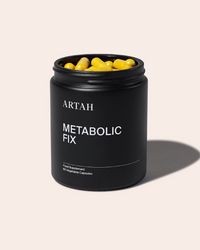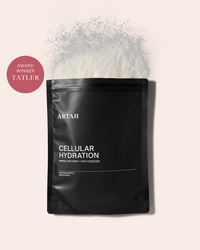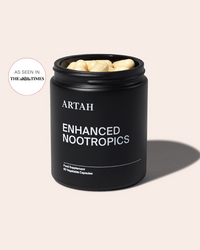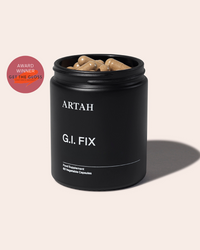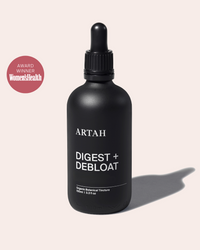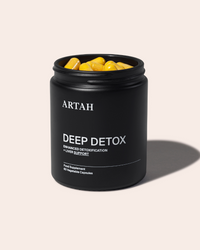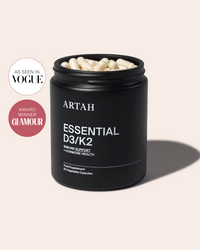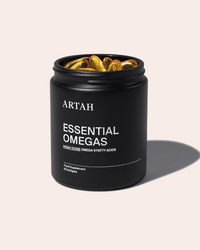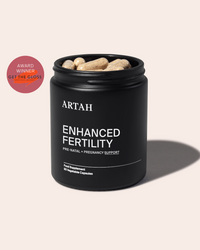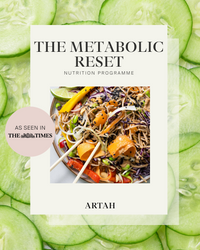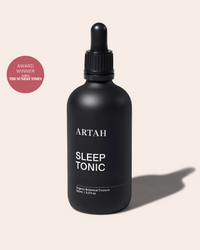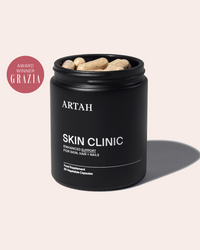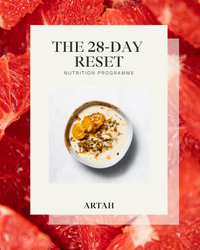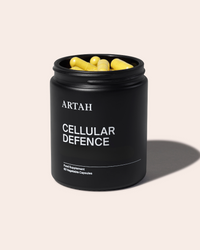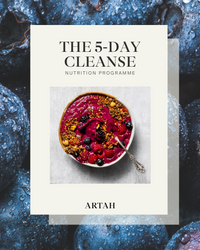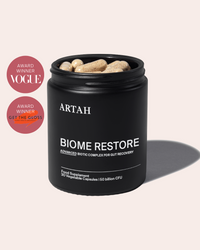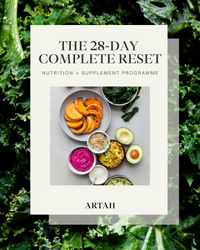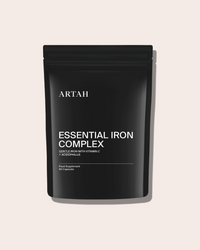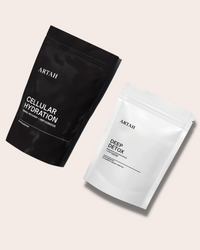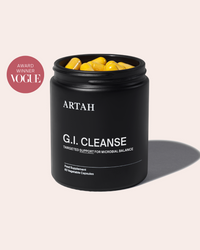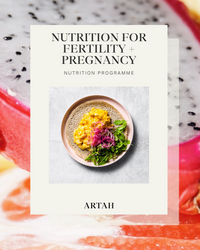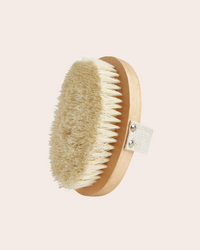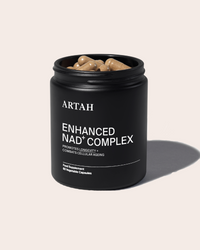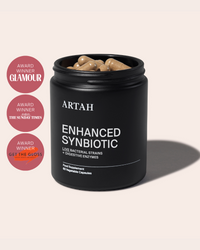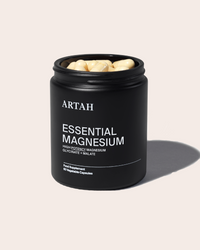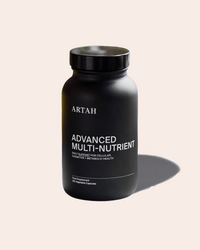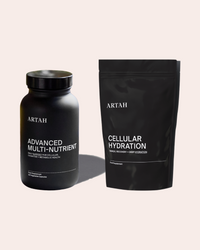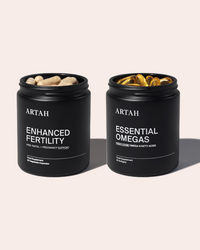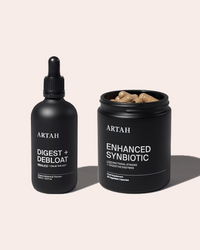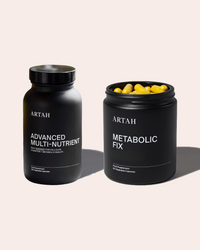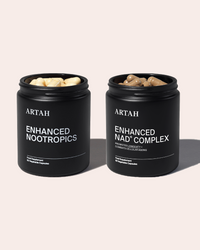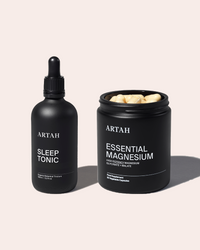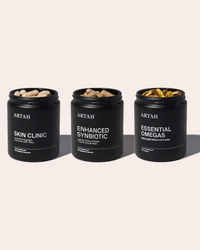Here's The Key To Good Gut Health
About one in three people in the UK suffer from symptoms of IBS, but regardless of whether you have IBS, focusing on your gut health is crucial to virtually every aspect of wellbeing.
The tricky part is this – imbalances in the gut don’t necessarily manifest as gut-based symptoms (like bloating, pain or bowel changes). Research has shown that the health of our microbiome is linked to numerous health problems, from obesity, diabetes, depression and mood disorders to autoimmunity, eczema, asthma, and even certain types of cancers. So, what can cause these imbalances? The key is diversity.
When it comes to the gut, there’s a whole emerging science entirely focused on microbial diversity and its effect on metabolism. The microbiome contains both beneficial and harmful bacteria, most of which live in symbiosis with the body. Some, however, have the potential to become pathogenic, which means they can promote disease and imbalances in everything from mood and weight to immunity and inflammation. In an ideal, healthy environment, these guys coexist in harmony, but when there’s a disruption of this balance dysbiosis can occur, causing an overgrowth of pathogenic bacteria and an increase in our susceptibility to illness. Factors that disturb this imbalance are more common than you think – viruses and infections (like Covid-19, food poisoning, gastric bugs), antibiotics, alcohol, and common medications like proton pump inhibitors, metformin, laxatives, NSAIDs, antihistamines and oral contraceptives.
Diet is also key – studies have shown that diets high in ultra-processed foods, starch, sugar, processed meats contribute to a less diverse microbiome, and those rich in plant foods help it thrive. Knowing what we know about these food categories, it’s hardly a surprise that they’re not good for the gut. But here’s the surprising thing – even if you’re eating a fairly healthy diet, if you’re not eating a wide variety of plant-based foods regularly, your microbial diversity can suffer (especially if you’ve ticked a few of the conditions and medications off the list above). For example, studies have shown that red meat can be inflammatory and increase risk of cardiovascular disease because of the production of a compound called TMAO. But this is heavily mediated by the diversity and strength of the microbiome. We now know that red meat has far less of an impact in individuals who have a strong microbiome because it’s the more pathogenic bacteria that produces more of this compound. So, what can you do to help improve your internal environment? Where to start depends on your current state.
THE HAPPY GUT
If your digestion and elimination is working well and you don’t have any gut related symptoms, it’s all about optimization. The first step is to review the list of non-essential medications from above and see if there’s anything you’re relying on too heavily. Are there any natural alternatives that you can swap in? Once you’ve done that, start working on your plant diversity from the list below. Do a rough count of how many different foods you include in a week and start to work your way up to 50. You don’t need to be perfect, we’ll all have weeks where it’s harder than others! But knowing how impactful this can be and keeping it front of mind is a great start. Make sure you include at least 3 servings of fermented foods per week, the best sources are wild pickles or sauerkraut.THE ANGRY GUT
If you’re currently in the throes of IBS, reducing inflammation, irritation and restoring function should be your priority. It’s important to remove any triggers from the non-essential medication list above. If there are any essential medications that you’re on, it’s a good idea to speak to your doctor about how they could be aggravating your IBS and seeing if there are any alternatives. G.I Fix is the go-to supplement and pairing it with Deep Detox can help get inconsistency and inflammation under control. When it comes to foods, finding your food triggers is a must. The 28-Day Reset is an easy to follow modified elimination protocol that will help you get there.THE INCONSISTENT GUT
If you’re somewhere in the middle, you can be a little gentler in your approach. Try to keep a log of the inconsistencies and how they may relate to food, alcohol or stress. Sometimes this is enough to find out if there’s a simple food trigger that throws off your system. In addition, introduce 3 servings of fermented food each week and start to up your plant diversity from the list below, aiming for 50 foods over time. If your gut needs a little help to get back on track, G.I Fix paired with the 7-Day Reset is your go-to support.
YOUR GOOD GUT FOODS
When it comes to balancing the microbiome, food is always first. The magic number here seems to 50 – it takes about 50 different plant varieties consumed regularly to hit optimal diversity. Sounds overwhelming, but it also includes herbs, spices, and what we call functional foods (like green tea). Here’s how to eat to create and nurture the greatest number of microbes.
— Prebiotic foods. These are foods that contain prebiotic fiber that nourish and help diversify the beneficial bacteria in the gut. Some of the best of the best include chicory, Jerusalem artichokes, chicory, garlic, onion, leek, shallots, spring onion, asparagus, beetroot, fennel bulb, green peas, snow peas, cabbage, chickpeas, lentils, red kidney beans, apples, nectarines, peaches, watermelon, grapefruit, pomegranate, oats, cashews.
— Probiotic foods. These are foods that have been fermented and are a good source of beneficial bacteria. Our favourites are yogurt, keffir, tempeh, wild pickles, kimchi, miso, natto, brined natural green olives, sauerkraut.
— Functional foods. These plants, herbs, and roots have beneficial compounds that promote bacterial health either by promoting the growth of good colonies, combatting overgrowth of bad colonies or reducing inflammation. The best of the best include triphala, licorice root (DGL), slippery elm, marshmallow root, turmeric, black clove, green tea, cardamom, oregano, ginger, green banana flour. Colourful fruit and vegetables rich in flavonoids are also big players when it comes to the microbiome, so aim to include berries, peppers, red cabbage and dark leafy greens
This list is a great start, but if you need a little inspiration for how to bring it all together, sign up for a free trial of our membership, which provides weekly meal plans + recipes – all of which hit your 50 per week – to help you stay inspired and on track.







